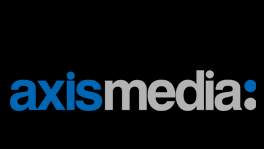Dividends are still more tax-efficient
As an owner-manager, you should be paying yourself a mixture of salary and dividends. Unfortunately, this will soon become more expensive in tax terms.
As a shareholder in your own company, you are probably (or should be) paying yourself using a mixture of salary and dividends. Unfortunately, this will become slightly more expensive in tax terms from next April.
Currently, the effective rates of tax on dividends are:
- Basic rate taxpayers – 0%
- Higher rate taxpayers – 25%
- Additional rate taxpayers – 30.6%
Dividend tax is technically higher than this but, once the related tax credit is taken into account, these are rates of tax that you actually pay.
Dividends received by pension funds that are currently exempt from tax, and dividends received on shares held in an Individual Savings Account (ISA), will continue to be tax free.
As a basic rate taxpayer, you can therefore pay yourself £38,952 during 2015-16 (a salary of £155 per week, plus dividends) without incurring any income tax or national insurance liabilities.
Alternatively, if you were happy to pay higher rate tax but did not wish to lose your personal allowance (and suffer 60% tax), you could pay yourself up to £90,806 (including that £8,060 salary). On this income, your tax bill would be £12,963 (an effective tax rate of 14.3 per cent) in 2015-16.
Changes to come
From April 2016, the notional 10 per cent tax credit (which causes great confusion to many people) will be abolished and replaced by a new tax-free dividend allowance of £5,000. The dividend allowance means that you won’t have to pay tax on the first £5,000 of your dividend income, no matter what non-dividend income you have. The allowance is available to anyone who has dividend income. You will pay tax on any dividends you receive over £5,000 at the following rates:
- Basic rate taxpayers – 7.5%
- Higher rate taxpayers – 32.5%
- Additional rate taxpayers – 38.1%
Dividends within your allowance will still count towards your basic/higher or additional rate bands, and may therefore affect the rate of tax that you pay on dividends you receive in excess of the £5,000 allowance.
Thus, for example, if you pay yourself a salary of £8,060 and a dividend of £39,940 during 2016-17 it is taxed as follows. The salary is tax-free, covered by the £11,000 personal allowance. The balance of the personal allowance of £2,940 is then utilised against the dividend income leaving £37,000 taxable. The basic rate tax band for 2016-17 is £32,000 therefore £5,000 of the dividend income will be taxed at the higher rate of 32.5 per cent. £32,000 less the £5,000 covered by the new dividend allowance will then be taxed at the basic rate of 7.5 per cent. Therefore on this income your tax bill would be £3,650 (an effective tax rate of 7.6 per cent).
You will, of course, still need to keep your total income below £100,000 if you want to keep your personal allowance intact. At that level, assuming that the vast majority of this is dividend income, your tax bill could be as low as £20,550 (an effective tax rate of 20.6 per cent) in 2016-17.
Remember also the cash flow benefit of paying dividends rather than salary or bonuses. If your company pays you a salary or bonus, it must account for the related income tax and national insurance contributions on a monthly basis under PAYE, and might not obtain the benefit of the associated corporation tax saving until nine months after the end of its accounting period.
If you habitually take dividends of a similar amount each year and take a dividend now, you would not pay the income tax until January and July 2016; and you would have until January 2017 before the tax becomes due if there is no prior history of such income. Although by taking a dividend the company’s taxable profit is not be reduced, as it would be if you take a bonus, the higher corporation tax liability will typically be payable only after the year-end.
The new rules on dividend taxation will increase the tax bills of most owner-managers, but it will still be cheaper in tax terms (looking at both the company paying you the income and you receiving the income) to declare a dividend in 2016-17 rather than pay yourself a bonus subject to PAYE





 What’s more, Andrew’s many years of experience means that there are few situations that he has not encountered meaning the advice he offers is based on a working knowledge not text book learning.
What’s more, Andrew’s many years of experience means that there are few situations that he has not encountered meaning the advice he offers is based on a working knowledge not text book learning.